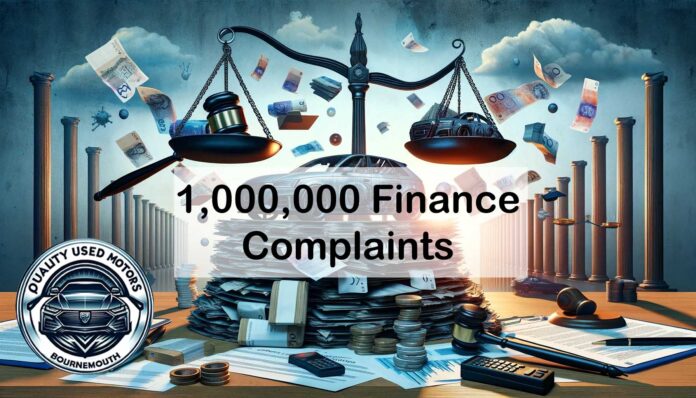In a stunning revelation by MoneySavingExpert.com, initiated by consumer advocate Martin Lewis, the car finance sector is potentially facing one of the largest compensation payouts in UK history, rivalled only by the infamous PPI scandal. This comes after the discovery that over one million complaints have been lodged by consumers fearing they’ve been unfairly charged on their car finance deals. This surge in grievances, facilitated by a free complaint tool on the MoneySavingExpert website, raises significant concerns about the practices within the car finance industry.
The Mechanism Behind the Movement
Launched in early February, this campaign was a response to the Financial Conduct Authority’s (FCA) investigation into opaque and potentially unfair car finance selling practices. Historically, some brokers had the liberty to set interest rates on loans, a process that often led to inflated commissions at the consumer’s expense. This led to higher finance costs for buyers, prompting the FCA to eventually ban such discretionary commission arrangements in 2021.
Black Horse, under the Lloyds Banking Group umbrella, currently leads as the most disputed lender, implicated in roughly 16% of all claims. The banking giant, which facilitates loans for brands like Jaguar and Land Rover, has already earmarked approximately £450 million in anticipation of possible compensations. Following closely are Volkswagen Financial Services, Stellantis Financial Services, and Santander, highlighting a widespread issue across major financing bodies.
Market Implications and Consumer Impact
The sheer volume of complaints, as highlighted by Mr. Lewis, underscores a crisis brewing at a pace even he hadn’t anticipated. This issue’s rapid escalation not only strains the lenders’ capacity to address these complaints promptly but also signals a potential seismic shift in the car finance landscape. Lenders may need to significantly augment their complaint-handling resources to manage the fallout effectively.
From an economic standpoint, should the compensation claims reach the anticipated tens of billions, akin to the PPI payouts, this could inadvertently inject a substantial financial stimulus into the economy. However, there lies a genuine concern that the costs incurred by lenders in covering these compensations could trickle down to consumers through increased finance rates or stricter lending criteria.
Looking Ahead: Navigating the Financial and Consumer Landscape
As the FCA mulls over introducing a formal redress scheme to streamline compensation, the impact on the car finance market remains a critical watchpoint. The potential overhaul in lending practices and the likely financial squeeze on lenders could reshape the way car finance is offered, impacting affordability and availability for consumers.
For those navigating the car finance market, this situation underscores the importance of vigilance and due diligence. Potential buyers should be acutely aware of the terms of their finance agreements, seeking transparency and fairness. As this situation unfolds, it not only heralds a significant shake-up in the car finance sector but also serves as a cautionary tale about the broader implications of financial mis-selling and the importance of regulatory oversight.
The unfolding saga of car finance mis-selling not only highlights a significant moment of reckoning for lenders but also flags important considerations for consumers and the market at large. With the possibility of a considerable financial outlay in compensations, the ripple effects could be far-reaching, potentially altering the landscape of car financing in the UK.








